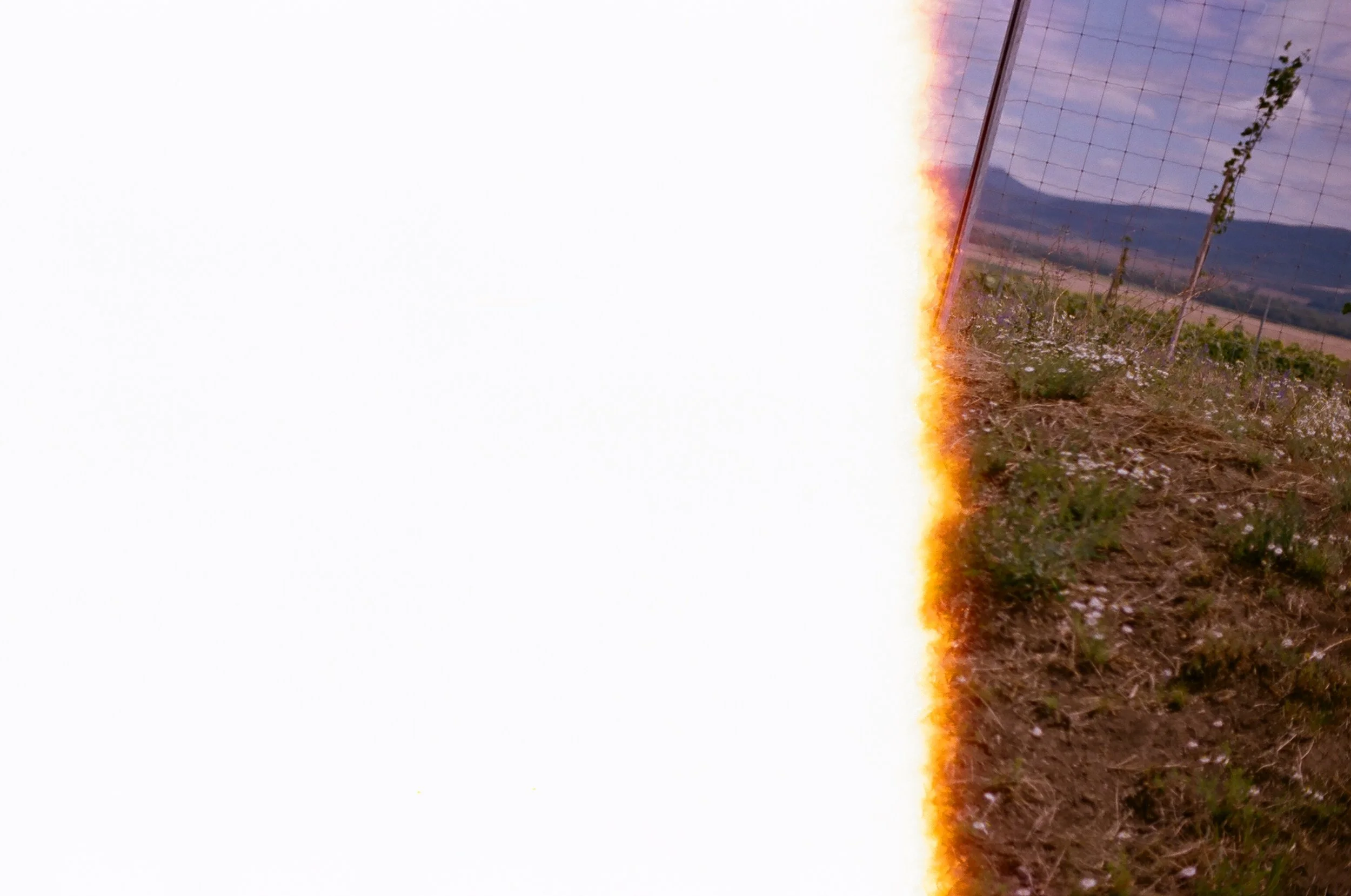POST-VOLCANIC FOLK TALES
My book cover is a painting entitled MEET ME ON THE OTHER SIDE by Lila Schubert.
This is the primary emotional terrain of Post-Volcanic Folk Tales. It is a fraught landscape in which an American granddaughter—we may risk calling her Scheherazade Polonyi—comes to terms with the progressive dementia and subsequent death of her Hungarian grandmother (stylized NAGYMAMA throughout), who was displaced from Hungary to New Jersey during the 1956 Hungarian Uprising … Against this political backdrop, these complex, propulsive lyric sequences have the effect of lament or keening, hence the preponderance of the oracular vocative O in this collection... The device works like a tuning fork, lowering and heightening the emotional pitch of poems that are not afraid to be vulnerable despite the real peril—public shaming, ostracization—that comes with a culture that surveils the oviparous throats of women, at times forbidding their voices from political discourse … With unapologetic energy and verve, Mackenzie Polonyi inaugurates a sublime poetics of remembrance. Post-Volcanic Folk Tales is incendiary art…
(from the foreword by) Ishion Hutchinson, author of School of Instructions: A Poem
This ferocious debut reads like no other. Where grief and exuberance dance under an encauldroned blood moon, mellifluous pyrotechnic incantatas hurl cacophonous fissile sparks, the unsung summoned into being. I am astounded by the invention and necessity of Mackenzie Polonyi’s mutating forms, multigenerational matriarchy writ mythically large and tragically precise in the wide wake of displacement.
Timothy Liu, author of Down Low and Lowdown
This formally restless — indeed, volcanic — collection disgorges poems of testimony and supplication, unsettling yet embodied, mercurial yet real. Ravenously, Mackenzie Polonyi embraces her maternal genealogy, transforming tragic histories of violence into a lyrical lament of immense linguistic intensity. This is poetry that turns lack into excess, elegy into a procession of alchemical adjectives, pain into a fever of the figurative. Opening this book is akin to entering a butcher shop where a girl-child — "raised secondhand homesick" — has been hoarding her grief between sugared milk and vinegar. Her rebellion against speechlessness is mounting page after page: "The history of a daughter is growing a garden of blood for a wound with a stomach of air that will swallow time like a mirror."
Valzhyna Mort, author of Music for the Dead and Resurrected
In Mackenzie Polonyi’s stunning debut collection, the human body becomes a landscape inscribed by multigenerational story, memory, and trauma. In these visceral lyric poems, boundaries between self and nature dissolve. Polonyi unearths ancestral connections––‘stone ruins cob-webbing my sternum’––as her symptoms and injuries merge with her suspended yet rooted foremothers’ ruptures. An alchemical blend of folklore and science preserves rituals like ‘pigeon-milk’ tonics amid seismic turbulence, propelling Polonyi’s searing language. Wonderfully kaleidoscopic in its exploration of a scattered and often uncertain identity, this book transports readers into realms where memories ossify into ‘rusted peafowl-blue’ relics. Blistering yet nurturing, Post-Volcanic Folk Tales reckons with how inherited psychic and corporeal complexities ultimately give rise to a profoundly compassionate yet questioning devotion, revealing: ‘my hands / they are becoming your hands’ across endless loss and regeneration. Look out! This book will change you.
Christopher Salerno, author of The Man Grave

